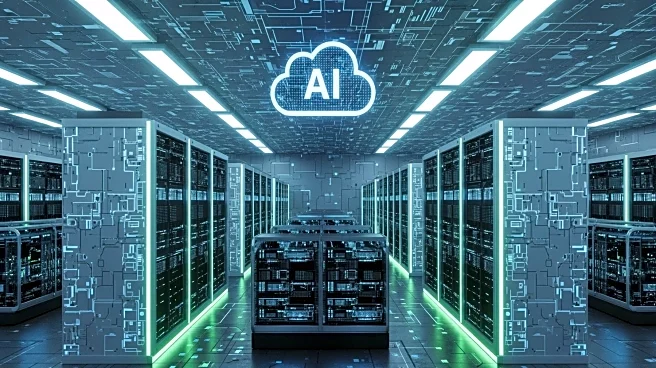What's Happening?
OpenAI has announced a $38 billion deal with Amazon to acquire cloud computing services over the next seven years. This agreement is part of OpenAI's broader strategy to expand its computing power, with plans to deploy AWS compute capacity by the end
of 2026. The deal follows OpenAI's recent restructuring, which allows the company to secure computing services from providers other than Microsoft. OpenAI is investing heavily in infrastructure, with commitments exceeding $1 trillion over the next decade, including partnerships with Oracle, SoftBank, and chipmakers like Nvidia and AMD.
Why It's Important?
The substantial investment by OpenAI and other tech giants signals a potential AI bubble, where massive sums are spent on unproven technologies without clear returns. This trend reflects the industry's belief in AI's transformative potential, despite concerns about its impact on the economy and job market. The deal with Amazon highlights the competitive dynamics among cloud providers, as they vie for leadership in the AI sector. OpenAI's strategy to diversify its cloud partnerships may influence other companies to adopt similar approaches, driving further innovation and competition.
What's Next?
OpenAI plans to deploy the AWS compute capacity by 2026, with potential expansion into 2027 and beyond. The company is likely to continue forming strategic partnerships to enhance its AI capabilities. As OpenAI scales its infrastructure, the industry will be watching for potential market corrections and the impact of AI on various sectors. Stakeholders will need to address ethical and economic concerns related to AI's rapid advancement.
Beyond the Headlines
The deal raises questions about the sustainability of large-scale investments in AI infrastructure and the potential for an AI bubble. As companies invest heavily in AI, there is a risk that expectations may not align with actual returns, leading to market corrections. Additionally, the ethical implications of AI's rapid advancement, including job displacement and privacy concerns, remain critical issues for stakeholders to address.















